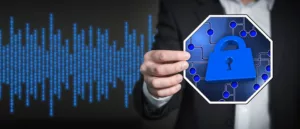The debate over Windows versus Mac has raged for decades. Some people love the one, and some prefer the other. Regardless of brand preference, there are solid technical reasons to choose Mac over Windows, and most of them center on security.
How the WannaCry ransomware attack exploited Windows OS
If you haven’t heard about the recent WannaCry ransomware attack that targeted Mac OS, that’s because it didn’t. The malware that attacked and shut down hundreds of thousands of businesses — and most unfortunate, hospitals — across the world last May took advantage of a leaked NSA Windows OS exploit called EternalBlue.
WannaCry wasn’t just any cyber attack. It blocked access to data through encryption and demanded a $300 ransom to restore it. WannaCry shut down businesses left and right for an extended period of time.
Hospitals in the UK even had to turn away patients and reroute ambulances. Experts have been warning this type of event is only going to rise. Ransomware is difficult to detect, and if you’re counting on your standard antivirus software to take care of it, you might want to think again.
As Temasoft explains, “The main issue with ransomware is the fact that it is not designed like a common virus. Not by the behavior it exposes in general. In the end, it mimics user behavior very well; it reads files, writes information to the disk and removes files. Just like all of us do on an average day.”
Temasoft also explains several ways classic antivirus software operates, and why dedicated anti-ransomware software provides better protection for ransomware. They explain that the technology used to detect malicious activity is more accurate, since ransomware and viruses behave differently from viruses.
But, it’s best always to use both.
Experts agree Macs are safer (for now)
The security firm Sophos discovered that one in five Macs has malware on it, including malware made for Windows. Malware written for Windows won’t necessarily cause harm to a Mac, but it can be passed around.
Most experts agree the main reason Mac OS is safer than Windows is that far more Windows computers are in use. Hackers write more malicious code for Windows because they’re more interested in a bigger target.
Malware for Mac is still a novelty. Still, everyone should use antivirus software to be as secure as possible.
Everyone is vulnerable to cybercrime
Although Mac users are just as vulnerable as people who have Windows to cybercrime such as phishing attacks, it’s not a fair measure for the security of either operating system.
“Phishing” is a tactic that’s been around for decades. Criminals employ fraudulent emails to entice people to reveal personal information. Then they steal your identity or money.
It’s not your computer’s operating system that makes you vulnerable to scams. Graham Cluley, senior technology consultant for Sophos, clarifies this point.
“They’re both mature operating systems from the security point of view, and as good as each other, ” he states. “But, crucially, it’s not about the operating system that is being run on the computer, it’s the fleshy human sitting in front of it…. Social engineering is the unifying threat that puts all computer users at risk, regardless of operating system. And that’s what most threats exploit.”
If you’re still not convinced you should opt for a Mac, here are some precautions you can take to keep your Windows machine safe:
Back up your data regularly
Backing up your data entails more than just copying your files to an external hard drive or thumb drive. For more foolproof protection, you should always disconnect from the Internet and turn off your WiFi before connecting the destination of your data to your computer.
External drives aren’t immune from malware; they function the same way as any other drive on your computer. If your computer falls prey to attack while your backup drive is connected, you could lose your files.
Be cautious about backing up data to the cloud
Whenever you back up your data to the cloud, you’re putting copies of your files on someone else’s server, where you have no control. Cloud-based data backup services are convenient, but you should be aware of the risks.
Servers get hacked all the time, even when they have security measures in place. Only use cloud backup services if you really need them.
Install antivirus and anti-ransomware software
It’s worthwhile to have both antivirus and anti-ransomware software on your computer(s). Don’t count on being able to get your files back after you’ve been locked out of your computer by the next version of WannaCry.
As a few people learned to their frustration last May, paying a ransom doesn’t guarantee the return of your files.








